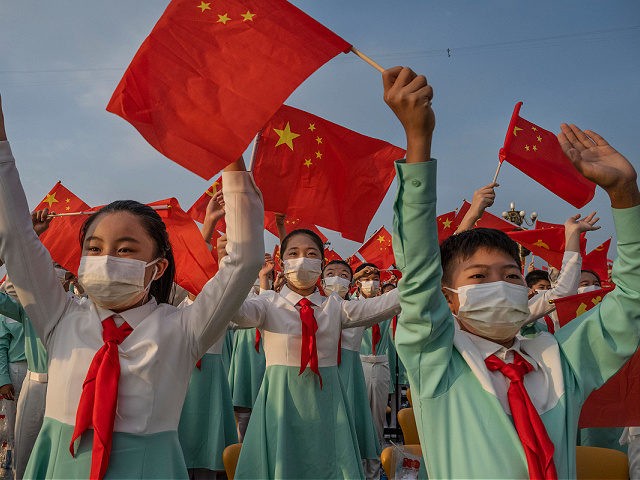China’s weekend session of the National People’s Congress (NPC) is scheduled to consider various emergency measures to address declining birth rates and a looming demographic crisis.
One NPC deputy is pushing for sex education in kindergarten as a way to make the Chinese population more fecund, in a way that will comport with “Chinese social values” (and Chinese Communist ideology) rather than Western values.
“Sex education is an indispensable part of schooling. Kindergarten is a crucial period for comprehensive sex education in schools,” said Dr. Chen Wei, who works for a hospital in eastern China in addition to serving as an NPC deputy.
Chen told China’s state-run Global Times on Thursday that “giving young people comprehensive sex education can postpone their first intercourse, reduce the frequency of sex and risks for those young people, and let them know how to use birth control measures.”
The Global Times thought sex education should focus on reducing the risk of sexual assaults against children, since it rattled off some statistics of China’s growing pedophilia problem, including an increasing tendency for boys to be the victims.
“In November 2021, the Ministry of Education issued the Guide for Life Safety and Health Education Curriculum Teaching Materials for Primary and Secondary Schools, which requires students to ‘learn the basic knowledge and skills of adolescent health care and improve their ability to prevent sexual harassment and assault.’” the Global Times noted.
Chinese authorities, and evidently quite a few parents writing on social media, were determined that China should develop its own sex-ed curriculum instead of borrowing textbooks from the toxic Western world:
Some experts believe sex education textbooks should not be just copied from the West. These textbooks should be developed by authorities, experts on child sex education and even representatives of public opinion, [Central China Normal University sexologist Peng Xiaohui] said, adding that these materials should be piloted and gradually improved in select kindergartens, so as to be promoted in kindergartens across the country.
It’s alarming that some Western countries have infiltrated sex education in China and instilled some so-called politically correct ideas into the younger generation through foundations, agencies and NGOs, the expert noted, adding that this constitutes Western interference in China’s social development from the commanding heights of discourse.
Many netizens and parents expressed similar views, saying that they encourage and support the idea of children receiving sex education, only if the content is consistent with children’s cognition, social cognition and legal constraints.
None of the “experts” quoted by the Global Times were specific about precisely what a sex-ed program for Chinese kindergarten children would look like or how the curriculum would change as the children get older, but the context of demographic decline suggests it would be heavily oriented toward encouraging monogamous and fruitful relationships.
Chinese law did not even recognize the concept of “sex education” until two years ago and it was largely pushed onto the books by parents who were worried about sex crimes against children.
The early sex ed laws included provisions for aggressively checking the backgrounds of teachers to weed out potential predators, but were otherwise vague about exactly what children would be taught about sexuality and when their education would begin.
The South China Morning Post (SCMP) reported in November 2020 that Chinese college students had vague memories of receiving sex education at some point in their lives, but they did not fare well on tests of their knowledge:
Survey results published this year by the China Family Planning Association and Tsinghua University found 52 per cent of the 54,580 university students polled had received sex education. However, in a survey with nine basic questions about sexual health, fewer than one-third of the students were able to answer six or more questions correctly. More than 8 per cent answered every question incorrectly.
Young people took to social media after passage of the revised law to express their hope that the next generation will receive early education about sexual health, women’s rights and sexual harassment.
The National People’s Congress considered sex education for young children last year, but the response from parents was skeptical, with many saying kindergartners are too young for the subject.

COMMENTS
Please let us know if you're having issues with commenting.